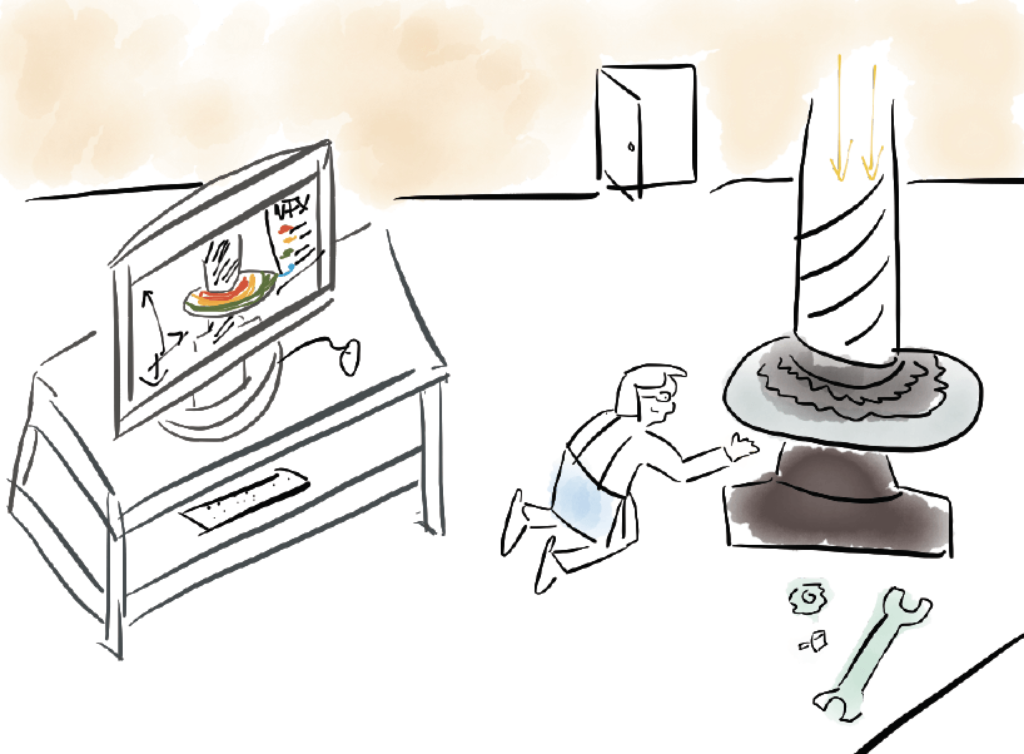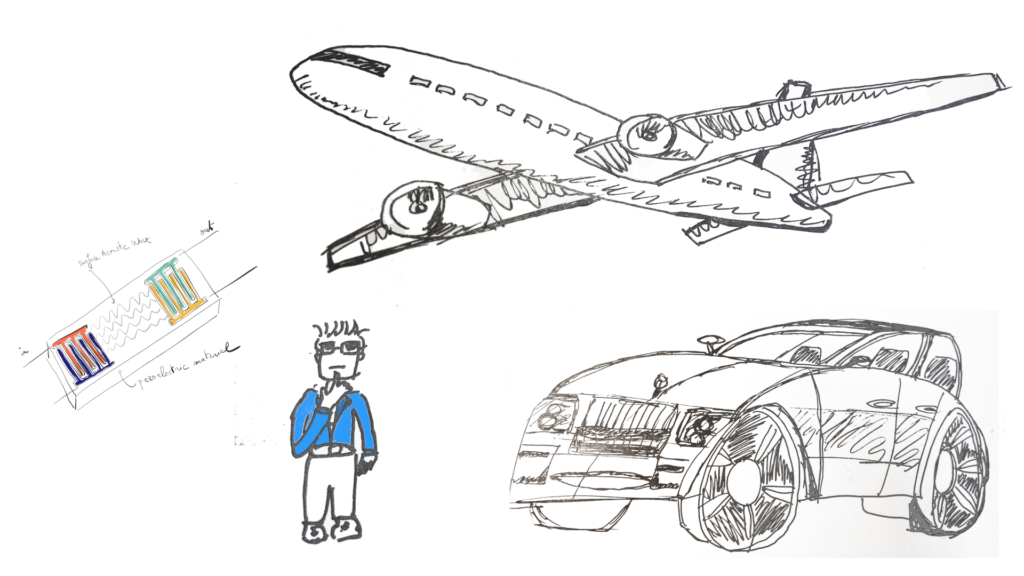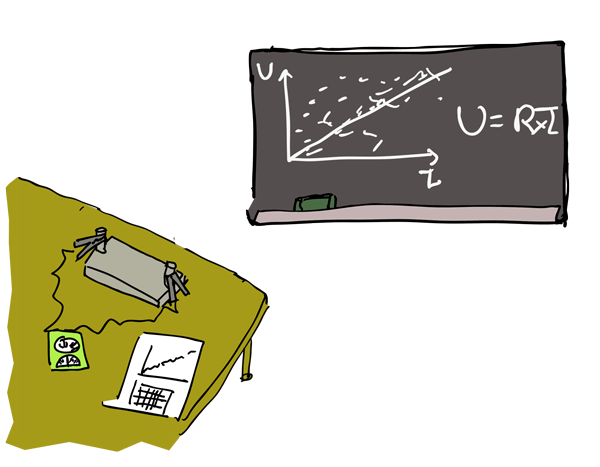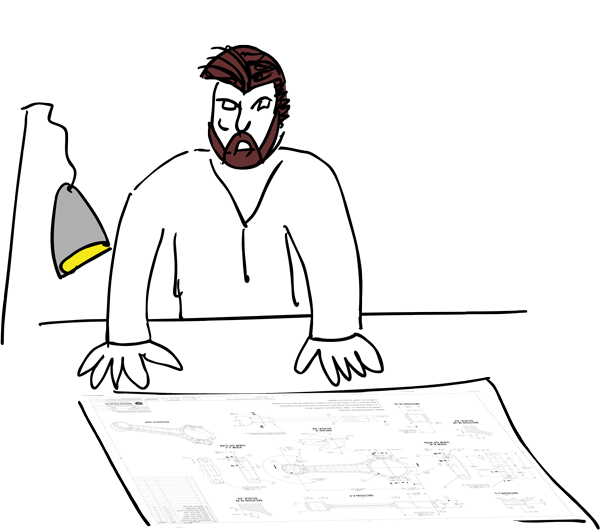This article is for beginners and non-engineers who want to understand what Computer Simulation is and what engineers do all day ;-)
It’s been many years since that first spark to become an engineer came to me
I still remember that I didn’t know at all what engineers where doing
I just knew that I loved maths and physics and I wanted to go in a field in which both are used extensively
At that time, Internet was in its infancy and very few information about what real engineers do was available
I remember watching the Matrix Trilogy and thinking that this could actually be true.

Maybe that’s when my love for Simulation actually started!
Even if computer simulation that engineers use is very different that what was depicted in those movies ;-)
I remember I still decided to embark in this journey and it has proved to be both exciting and one of the best decisions I have ever done
Now, in 2022, I believe I can finally answer my own questions at the time.
So… What do engineers do?
I now have a very simple answer for that actually
(But as usually, simplicity sometimes just hides complexity behind a curtain)
« Engineers build stuffs »

By stuffs, I mean complex systems.
You can argue that people who build simple stuffs like a chair, a pillow or a door are also engineers.
Except that their job is less technical and more artistry or skill. If you know how to cut some pieces of wood and fix them together, you can build a chair, not need to know about maths and physics.
What kind of complex systems engineers build?
The world is huge and almost everything can be seen as a system.

Just look around you at the objects you use every day and you will have already some ideas:
- Your computer
- Your Car
- Subway and Public Transports
- The electric network in your house
- The electric power plant that supplies the electricity
- All the domestic appliances you own
- etc…
And those are just the domestic product for your own usage.
Now think about what a power plant or a factory would need in terms of systems to work.
Because that’s the thing about systems, they can be broken down into sub-systems
Think about the components of your computer (The processor, the GPU, etc…)… and how each of them can also be broken down into essential parts that makes them work!
Engineers are people who are in charge of understanding how all of those systems work, how to operate them, how to change and improve them, how to design and optimise them, etc…
Of course, there is no ONE engineer who can do ALL of that that…
That’s why engineers are generally specialised into various kinds of professions and industries
An engineer in car mechanics will not do the same job AT ALL compared with a software engineer.
A Research and Development (R&D) engineer in aerospace will also do a very different job compared with a R&D engineer in thermodynamics.
Everything starts with Maths and Physics
Engineers are people who are taking everything they can use as a tool that will help them to build better systems… including Maths and Physics.

So if you prefer abstract math, you are probably not an engineer. Engineers like to apply stuffs.
Equations that can be converted into numerical solvers and provide insights how how real systems work is what interests engineers!
(That’s what simulation is about…I’ll come back to it ;-) )
Let me give you a few examples to make it a bit more understandable if you are in the very beginning of your journey to become an engineer one day
What does a R&D engineer in Nuclear Industry do?
I was one, so I can tell you ;-)
First, your job as an engineer depends on:
- What kind of engineer you are
- What industry you are in and what product your company develops
- The size of your company
an R&D engineer, like the name implies, does research and development.
Which means that he has to think ahead about some ways the current product of his company has to be improved or changed and investigate some solutions.
Research and development tries to look way ahead in the future (10+ years) to foresee the future improvement of the technology… because some technologies can take a very long time to become usable in practice !
In short, the R&D engineer rather « imagine what will be built » instead of actually building it.

If your company develops a very mature product that existed for a long time, you will probably be in charge of a very small aspect of it and the focus will probably also be towards the durability and the stability of the product.
If your company develops some kind of new technology, you will be more focused on « actually making it work ».
If your company is large, you will have a very small responsibility and you will have a large team of people to talk to. Projects will be mostly going slow with a lot of discussions and consensus (It depends on the company of course)
If your company is small, you will have much more room and responsibilities that will impact the development of the product.
And of course, with more power comes also more responsabilities … (Probably my best quote from Spiderman )
What do simulation engineers do?
Simulation engineers can also do very different things!!
A simulation application engineer will use simulation software to create simulation models and try to replicate and design real systems on a computer.
Simulation development engineer are engineers who actually write the solver used in the software that the application engineer will use every day.
I have a lot more to say about computer simulation, but that will be for next time ;-)
…And there’s already plenty of interesting articles on this blog if you want to understand FEA simulation:
- The difference between CAD and CAE Simulation
- What is linear static analysis in FEA Simulation
- How to recognize a beginner in FEA?
If you have any question of comment about this article, or about anything else, leave it here on this blog! I read all of them

Cyprien “Computer Simulation Explained Simply” Rusu
Hello, Cyprien, firstly I would like to thank you for keeping me inspired me on learning open-source finite element software. I would like to hear your opinion about other open-source software for remeshing called MMG. Maybe it can complement the existing similar software. Thank you for your kind attention.
Even making a simple chair table can be engineering now … e.g. 3D printing a simple piece of furniture with no joints or nails in it … just a continuous product (I may be wrong on this additive manufacturing aspect as I am not too familiar with it).
So I guess anyone who makes anything can be an engineer. It depends on how far one can take its craft ….
Simulation engineers are ones who like to find the answers beforehand in a relatively cheaper manner. Predicting the answers before finding the answers